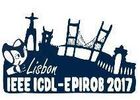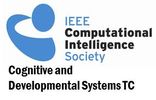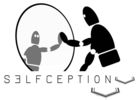
The Development of the Self
from self-perception to interaction under uncertainty
DoS2017 NEWS Special issue accepted in Frontiers
Neurorobotics/Psychology/Neuroscience journals
Body Representations, Peripersonal Space, and the Self: Humans, Animals, Robots
journal.frontiersin.org/researchtopic/6865/body-representations-peripersonal-space-and-the-self-humans-animals-robots
Deadlines:
- 28 February 2018 Abstract
- 30 June 2018 Manuscript
Welcome to the workshop website. Here you can find all the information about the full day workshop that will be held the 18 September 2017, at the 7th Joint IEEE International Conference on Development and Learning and on Epigenetic Robotics in Lisbon, Portugal.
Link to presentation: goo.gl/gqMDyP
Any questions regarding this workshop, please send us an email.
Workshop Information
Date: 18th September 2017
Location: Lisbon, Portugal
Extended deadline: 10th August, 2017 27th August, 2017. CLOSED
Notification of acceptance: 28th August, 2017, 1st September, 2017. Decision Sent
Camera ready version and slides (2-3 slides pdf): 10th September, 2017.
Short description
The development of intelligent behaviour depends strongly on active exploration and sensorimotor interactions with the world. However, it is not clear how multimodal sensorimotor temporal and spatial associations could be integrated into a single representation of the self or individual sense of agency or ownership.
What is a sensorimotor self? How can sensorimotor learning ground the development of the self? And what could be the benefits of having an integrated bodily self-model in order to support effective actions in an uncertain world (e.g., through prediction)?
This interdisciplinary workshop brings together roboticists, psychologists and cognitive scientists to address these questions and to discuss the challenges and possibilities arising for building real life robots. The purpose is to: i) shed some light on the development and construction of the sensorimotor self; ii) discuss computational models that use self-perceptive learning as a basis for active interaction and agency inference; and iii) to propose the steps toward future interdisciplinary research regarding the active self concept.



